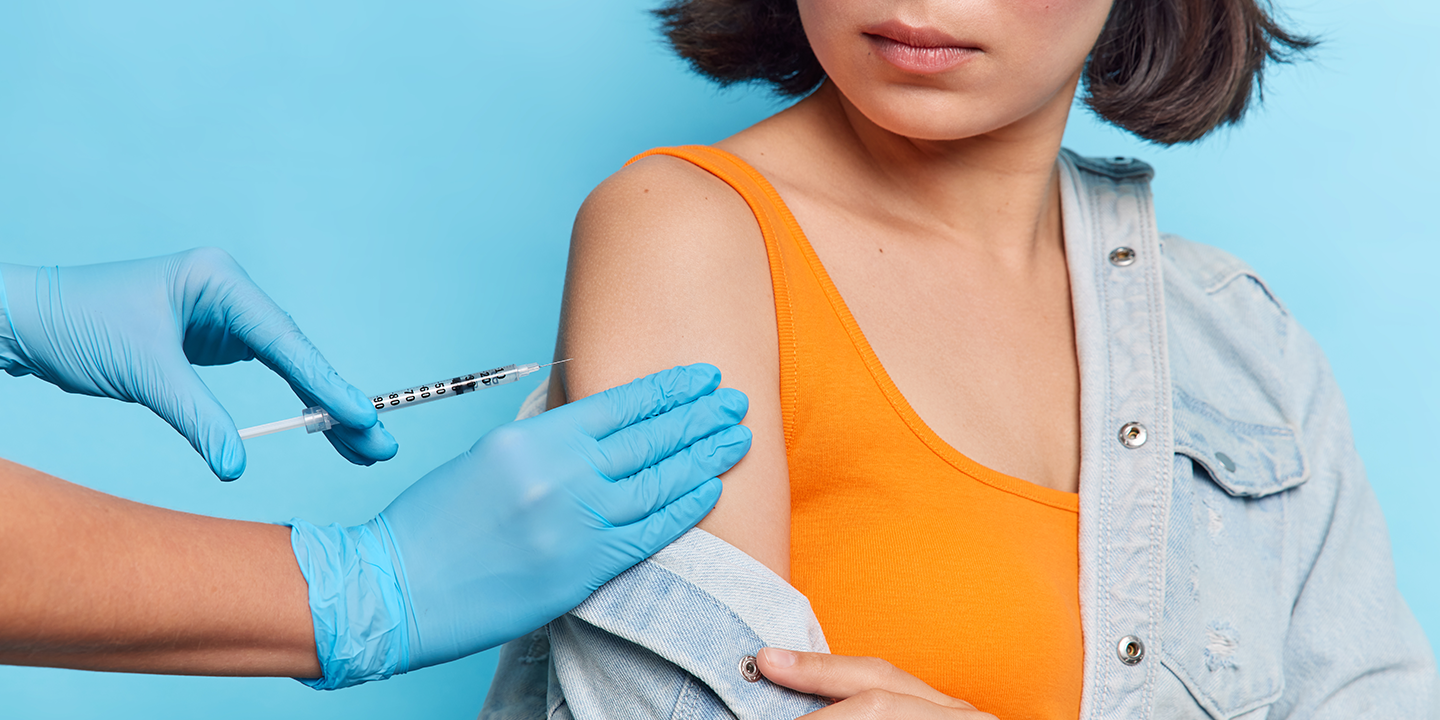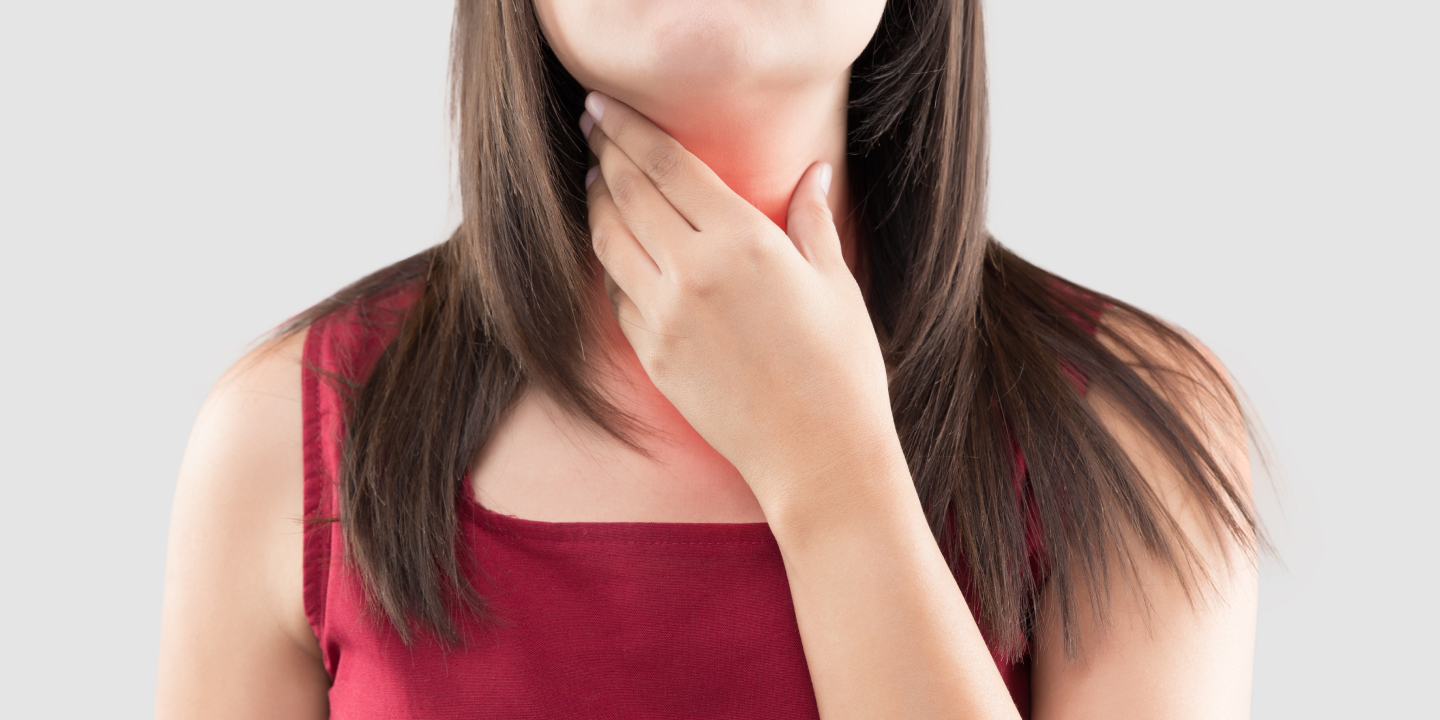
Human Papillomavirus (HPV) is a prevalent sexually transmitted infection, that leads to a plethora of complications, including cervical cancer, genital warts, and oropharyngeal areas.
Given the preventative nature of vaccines, it isn’t surprising that the importance of the HPV vaccine is often highlighted and praised by medical professionals. If you want to reduce and predominantly eliminate the risks of cervical cancer, familiarizing yourself with the HPV vaccines is quintessential.
As a leading gynecology and women’s health clinic in India, we want to ensure that every woman knows the significance, risks, schedule, and age of getting the HPV vaccine in India. This comprehensive guide from Queen’s Gynecology will discuss it all in detail.
In this Article
- 1 What is HPV?
- 2 What is the HPV Vaccine?
- 3 What Does the HPV Vaccine Shield From?
- 4 What are the Types of HPV Vaccines in India?
- 5 Who is Considered an Ideal Candidate for the HPV Vaccine?
- 6 How does the HPV Vaccine Work?
- 7 What is the HPV Vaccine Schedule?
- 8 What are the side effects of HPV Vaccine?
- 9 Government Incentives in Budget 2024-25
- 10 What is the Cost of the HPV Vaccine in India?
- 11 Conclusion
What is HPV?
Before we discuss the HPV vaccine, it makes sense for us to highlight what HPV is and why vaccination against this virus is vital for one’s health.
Human Papillomavirus (HPV) is a group of related viruses, with over 200 types identified. These viruses are classified into low-risk and high-risk types based on their association with various health conditions. This kind of virus is usually transmitted through sexual contact, leading to symptoms of persistent infections and elevated risks of cervical cancer as well.
To iterate on the subject, the following is a list of all the health risks associated with HPV:
Cervical cancer – Persistent infection with high-risk HPV types, particularly types 16 and 18, is the leading cause of cervical cancer in women.
Genital warts – Certain low-risk HPV types can cause the development of genital warts, which are non-cancerous growths on the genital and anal areas.
Oropharyngeal cancer – In some instances, HPV is also responsible for causing cancers in the throat, tongue, and tonsils of the patient.
Other cancers – Some of the other types of cancers that have elevated risk due to HPV include cancers that affect the vulva, vagina, penis, anus, etc.
What is the HPV Vaccine?
Now that you formally understand HPV, let us move to the article’s subject, which is the HPV vaccine.
The HPV vaccine is a series of vaccination shots that are administered to protect against HPV infection. HPV is one of the most prevalent forms of STIs, and given that the risks of this viral infection can lead to a prevalence of cancers, opting for preventative measures is the need of the hour.
At Queen’s Gynecology, we often prioritize educating the patients about the impact of HPV and why getting tested, using protection during intercourse, and prioritizing HPV vaccination are essential to prevent chronic and irreparable complications down the road.
A fun fact about the HPV virus is that around 80% of sexually active people contract the infection at some point in their life. However, people with solid immunity will be able to fight the infection off by themselves. In people with poor immune systems, the infection becomes recurrent and leads to further complications.
So, if you are accidentally exposed to HPV, the vaccination acts as a protective shield and wards off the infection before it takes a turn for the worse. This explains why being aware of the HPV vaccination in India and getting the shot is encouraged if you are sexually active and want to prevent future risks.
What Does the HPV Vaccine Shield From?
One of the most common misconceptions that we have noticed among patients at Queen’s Gynecology and people in general is that HPV is a death omen. Many people have this belief that an HPV infection always leads to cancer.
Technically, while the prevalence of cervical and other types of cancers is elevated due to the HPV vaccine, it isn’t always the case. In some cases, the HPV infection will recover with proper treatment. Even then, our gynecologists will vehemently recommend that you get the HPV vaccine to safeguard yourself from chronic ailments like cancer and warts.
The main benefit of the HPV vaccine is that it protects against low-risk and high-risk HPV strains. So, you are pretty much covered when it comes to preventing the infection from progressing to cancer.
Some of the types of cancers and complications that can be prevented using HPV vaccine include:
- Cervical cancer
- Vaginal cancer
- Vulvar cancer
- Penile cancer
- Oropharyngeal cancer
- Anal cancer
- Genital warts, etc.
HPV vaccines, often known as cervical cancer vaccines in India, have a strict schedule for application. This is one of the reasons why we encourage proper consultation with a specialist at Queen’s Gynecology before considering the vaccination. A thorough understanding of the vaccine and its risks is ideal for the patients to make informed decisions.
Related Blog –Cervical Dysplasia- Know The Details
What are the Types of HPV Vaccines in India?
In India, the incidence rate of cervical cancer in women is 14.7 per 100,000 women, and the mortality rate due to cervical cancer is 9.2 per 100,000 women. In hindsight, these alarming numbers are a reason why medical professionals and even the Indian government are now encouraging individuals to opt for the HPV vaccine as a preventative measure against such deadly diseases.
At present, there are three types of HPV vaccines available in India. They include:
Gardasil
Gardasil is a vaccine that helps protect against certain strains of the human papillomavirus (HPV), a very common sexually transmitted infection. Gardasil is available in India but less widely than in some developed countries. The original Gardasil and Cervavac, an indigenous quadrivalent vaccine by the Serum Institute of India, are present.
The vaccine targets four types of HPV strains:
- HPV 6
- HPV 11
- HPV 16
- HPV 18
Among these four variants, HPV 16 and 18 are the two strains that contribute to around 80-85% of cervical cancer cases in India. The other two strains are the low-risk strains, which lead to the development of genital warts.
Gardasil 9
The next common type of HPV vaccine available in India is Gardasil 9, a non-valent vaccine that protects against nine strains of HPV.
This includes:
- HPV 6
- HPV 11
- HPV 16
- HPV 18
- HPV 31
- HPV 33
- HPV 45
- HPV 52
- HPV 58
The last five strains (31, 33, 45, 52, and 58) account for roughly 10% of cervical cancer cases in India.
Cervavac
The last one on the list is Cervavac, which is also a quadrivalent vaccine that shields against four primary types of HPV, including:
- HPV 6
- HPV 11
- HPV 16
- HPV 18
It is the first indigenous HPV vaccine made available in India and has been available for the public since January 2023. Cervavac is expected to be more affordable with government subsidies (Rs. 2000/- per dose) compared to the high HPV vaccine price of imported Gardasil (Rs. 3500/- per dose). Cervavac is undergoing a phased rollout in select states at the moment.
Who is Considered an Ideal Candidate for the HPV Vaccine?
Now that you have all the relevant information about the types of HPV vaccines and what kinds of strains they shield against, the next point of consideration is the ideal candidature.
Are you an ideal candidate for the HPV vaccine? Technically, there is a list of dos and don’ts in this case. Despite its safety, the vaccine is not universally ideal for everyone.
Following are a few considerations to keep in mind:
- The recommended age for HPV vaccination in India is 9-14 years old, similar to global recommendations.
- Two doses are required for 9-14-year-olds, while three are needed for those above 14.
- Catching up for older individuals who missed the vaccine earlier is also recommended.
These might seem confusing, so we recommend thoroughly discussing them with our gynecologists at Queen’s Gynecology. We are here to help you understand the innate details about the HPV vaccine, its availability, the HPV vaccine schedule, and all the relevant details you need to know for yourself or even your adolescent child in the ideal age group for the vaccine.
Note: If you are a middle-aged individual and think you wouldn’t need or benefit from the HPV vaccine, that’s not the case. In fact, at Queen’s Gynecology, we encourage individuals to discuss when, why, and where to get the cervical cancer vaccine in India, aka the HPV vaccine. It’s never too late to contact your gynecologist to discuss the vaccine.
That said, who aren’t ideal candidates for the HPV Vaccine? The following are a few factors to consider in that case:
- You should not get the HPV vaccine if you are pregnant. Although there aren’t majorly recorded complications, it is still better to be safe.
- If you have had a previous dose of the HPV vaccine and your body didn’t react well to the vaccine, it is ideal not to get it again. The symptoms can get worse and aren’t considered ideal.
- If you are currently sick and have a poor immune system, it is better to wait until you are healthy to consider getting the vaccine.
In short, the key is to thoroughly discuss with your gynecologist before administering the vaccine.
How does the HPV Vaccine Work?
The HPV vaccine works by training your immune system to recognize and fight off specific strains of the Human Papillomavirus (HPV).
The vaccine contains inactivated virus-like particles (VLPs) that mimic the outer shell of certain HPV strains but lack the genetic material to cause infection. Different vaccines offer protection against different HPV strains. In India, Gardasil 9 covers nine strains, while Cervavac protects against four. So, the mode of immunization will depend on the kind of HPV vaccine that you have received.
When injected, the VLPs trigger your immune system to recognize them as foreign invaders. This stimulates the production of specialized white blood cells called B and T cells. B cells create antibodies, proteins that bind to and neutralize the HPV VLPs.
Once your immune system encounters the VLPs, it “remembers” them. This memory allows your body to quickly mount a robust immune response if it encounters the actual HPV virus in the future.
Note: One of the most essential elements to understand about the HPV vaccine is that it doesn’t contain the live virus, which means that you won’t contract an HPV infection due to the vaccination.
What is the HPV Vaccine Schedule?
Three age cohorts can receive the HPV vaccine for optimal protection. So, if you want a breakdown of the vaccine’s ideal schedule and administration, the following are the ones you need to know:
9-14 years (preferred target group)
Two doses – at 0-6 months, followed by the second dose at 5-15 months.
15-26 years (catch-up vaccination)
First dose at any time; Second dose 1-2 months after the first; Third dose 6 months after the second (minimum interval is 4 months)
27-45 years (older age group)
0, 1, 6 months (Bivalent); 0, 2, 6 months (Quadrivalent & Nonvalent)
Note: If you are 26 years and above getting the HPV vaccine, it is recommended to ensure that you have a realistic expectation regarding the vaccine’s efficacy. We highlight everything worth prioritizing at Queen’s Gynecology, including the reduced efficacy of the vaccine with age.
What are the side effects of HPV Vaccine?
Like every other vaccination, even the HPV vaccine comes with a list of side effects, which are conveyed clearly by the medical professionals before administration. Keep in mind that these are standard HPV vaccine side effects, and you might not experience all or any of the symptoms.
That said, some of the HPV vaccination side effects include:
- Soreness
- Muscle or joint pain
- Headache
- Dizziness
- Fever
- Nausea
- Allergic reactions
Note: If you experience any allergic reaction to the vaccine, it is mandatory to consult the doctor immediately to overcome the complications before it takes a turn for the worse.
Government Incentives in Budget 2024-25
Finance Minister of India, Nirmala Sitharaman, highlighted the importance of the HPV vaccine and protection against cervical cancer in the interim budget in 2024-25.
While announcing the budget, Sitharaman stated, “Our government will encourage vaccination for girls aged 9 to 14 years as a preventive measure against cervical cancer.”
Given that cervical cancer is the second most common cancer among women in India, there is a dire need for immediate immunization for protection against the disease in the future.
Besides that, the interim budget also focuses on maternal and childcare programs. Additionally, introducing the U-Win platform is expected to boost India’s government’s immunization efforts. Furthermore, the interim budget also expands the Ayushman Bharat cover for ASHA workers, streamlining healthcare accessibility for the underprivileged.
The medical professionals across India have applauded the inclusions and discussions surrounding cervical cancer, HPV vaccination, and women’s healthcare in the interim budget, and we can expect further progressive inclusions in the future.
What is the Cost of the HPV Vaccine in India?
The HPV vaccine cost in India is variable and depends on the type of vaccine you are getting. Initially, you’d have to start with a consultation to learn the ins and outs and comprehensive details about the cervical cancer vaccine age limit.
Following that, you’d be redirected to getting the vaccine. Here’s a breakdown of the pricing depending on the type of vaccine:
Gardasil 9 – This imported vaccine offers protection against nine HPV strains and costs roughly around Rs. 11,000.
Cervavec – Its price remains under review, but estimates suggest it could be as low as ₹2000 per dose, making it potentially ₹4000 for the two-dose regimen.
Conclusion
In conclusion, the HPV vaccine is a powerful tool in preventing HPV infections and associated health complications, including cervical cancer. Understanding the age recommendations, vaccination schedule, and potential side effects is essential for informed decision-making.
If you are considering safeguarding yourself against HPV infections and the risks of cervical cancer, our specialists at Queen’s Gynecology are here to guide you through the process. Kindly contact our team to schedule an appointment.




